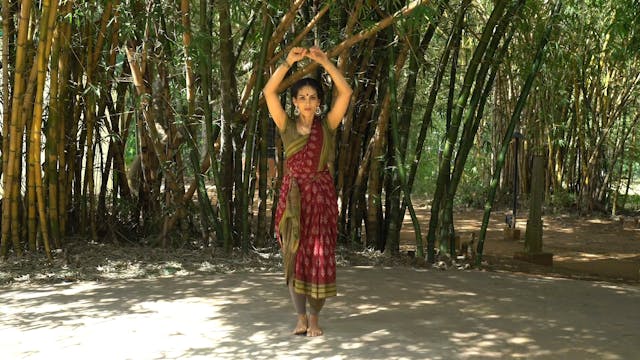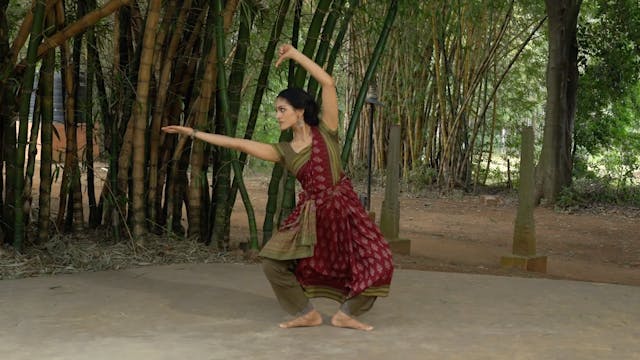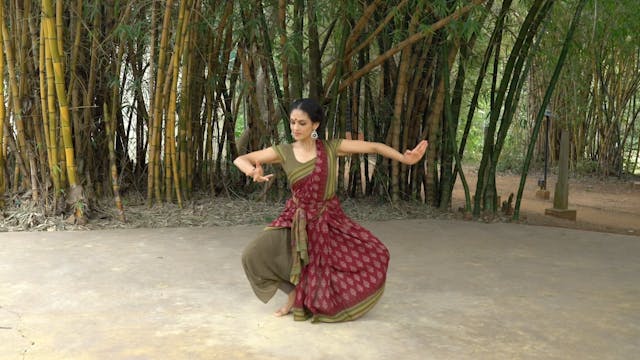Paraval Adavu 1
Playlist 17 : Repertoire Pushpanjali
•
3m 21s
Paraval literally means to spread. Some schools of thought also call the Paraval adavu, the 'Pakkadavu' as it moves to the side while sliding. Some others change the name based on the way the foot articulates with the floor. A few of the types of Paraval, can be referred to as Marditam adavau, as it uses the kicking movement of the foot. For simplicity we will refer to the entire series as Paraval. The Raadha Kalpa method introduces and practices over 8 types of Paraval adavus. There will be two basic types introduced in the first set of adavus.
Like the Pakkadavus, the feet articulation define the varieties. The arms are largely interchangeable.
Please pay attention to the feet in the first two varieties.
- Keep the shoulders down when the arms rise up.
- Make sure your arms stretch completely when they lift above the head.
- Extend your arm completely when stretching to the side.
Up Next in Playlist 17 : Repertoire Pushpanjali
-
Korwe Adavu 1
The Korwe adavu is a combination of previously introduced foot and body articulations. It is called a Korvey adavu as it cannot be placed into any specific category. It has a Tattu, naatu, Bramari, Serikal amongst other movements. Some Korwe adavus also use a Kudittam in the feet.
Things to kee...
-
Korwe Adavu (utplavana 1 )
The Korwe adavu is a combination of previously introduced foot and body articulations. It is called a Korvey adavu as it cannot be placed into any specific category. It has a Tattu, naatu, Bramari, Serikal amongst other movements. Some Korwe adavus also use a Kudittam in the feet.
Things to kee...
-
Ta hata Jumtari ta Adavu
The "Ta hata jumtari ta" Adavu, is named after the syllables that are used in the practice of the Adavu. This practise is common amongst most lineages of Bharatanatyam.
The Adavu is a combination of various movements. It has the 'di, di tai" action with the Tattu and Naatu, from the muktaya ada...


